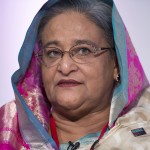Semen Kuksov was jailed in February for five years and seven months after pleading guilty to laundering “more than £12 million (US$15 million) of criminally obtained cash,” the U.K.’s Crown Prosecution Service said in a statement announcing the sentencing.
Both he and his father, Vladimir Anatolyevich Kuksov, appear on a list of people granted citizenship in 2022 by Malta, a European Union country. The elder Kuksov has no connection to his son’s criminal case.
Under Maltese law, passports can be revoked if an applicant is sentenced within seven years of becoming a citizen to a jail-term of a year or longer.
The Community Malta Agency, which oversees the citizenship program, is reviewing the case of Semen Kuksov, said CEO Joseph Mizzi.
The agency is “seriously considering offering to advise the Minister to initiate the process of deprivation of citizenship,” he said in an email.
The Kuksovs appear to have been given Maltese citizenship mere weeks before Russians were excluded from passport sales to wealthy investors in the wake of the Kremlin’s February 2022 invasion of Ukraine.
Vladimir Kuksov’s U.K. lawyers said in a letter to reporters that “he applied as long ago as 2019, perfectly appropriately and underwent the normal lengthy governmental due diligence process before becoming a Maltese citizen.”
In July 2022 –– about six months after receiving his Malta citizenship –– Vladimir’s son and an accomplice began managing “couriers to collect criminal money and deliver the laundered money overseas,” according to the U.K. prosecution service statement.
In regard to the case against Semen, Vladimir Kuksov’s lawyers said he had “no comment to make but notes that he and his adult son have lived separate lives for some years.”
Vladimir Kuksov chaired AKROS, one of the leading companies in the Russian oilfield service industry and a partner of several sanctioned companies, including Lukoil and Gazprom. He remains a majority shareholder via Visnoy Limited, a Cypriot company. Neither Kuksov nor AKROS have been sanctioned.
Malta’s cash-for-passports program, launched in 2014, proved to be an instant hit for Russians. During its first year of operation, 54 percent of applications were submitted by Russians.
After years of Maltese politicians denying reputational risks, Russia’s invasion of Ukraine sparked renewed scrutiny of the program.
Critics argue that so-called “golden visa” schemes have allowed easy access to the EU for “organized crime figures, tax-evaders” and other undesirable individuals.
The European Commission said in a 2019 report that golden visas “have raised concerns about certain inherent risks, in particular as regards security, money laundering, tax evasion and corruption.”
In March 2023, the European Commission took legal action against the Maltese government, arguing that granting citizenship for a “predetermined payment” violates EU law.
In a 2022 statement, Malta said the citizenship program is legal and that applicants are subject to “robust due diligence processes.”
The government said the process ensures that “only worthy individuals would acquire Maltese citizenship and consequently European citizenship.”



